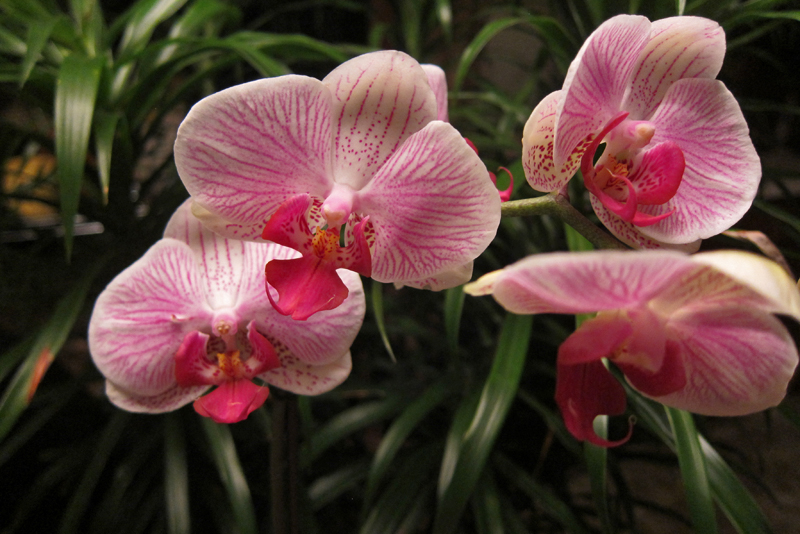Cheaper Alternatives Ingredients In Mericloning

For those who are interested in tissue culture, but are sometimes hampered by either the non-availability or higher cost factor of this technique, let me suggest a few alternatives of one of the major ingredients. These alternatives are cheaper and will bring down the cost of the process.
Let’s take up the case of agar-agar, it is used as a gelling agent in the growth medium used for culturing. The cost of agar-agar depends upon the grade of purity and is one of the costliest ingredients of tissue culture. However, a group of scientists (R Jain and SB Babbar, in particular) have suggested many cost-effective alternatives to expensive agar-agar. These are:
• 1% Xanthan gum can be used in place of 0.9% agar. While preparing the medium xanthan has to be mixed along with all the other substances in distilled water. After adjusting the final volume and the pH at 5.8 it should be autoclaved for about 15 – 20 minutes.
• In plants other than orchids guar gum has shown better results than agar-agar for shoot and root growth. It can be tried for orchids as well. In place of 0.9% agar-agar 2, 3 or 4% guar gum can be used.
• A bark gum called gum katira can be used in place of agar. 3% gum katira added to the medium in place of 0.9% agar gives similar growth results.
• Polyurethane foam when used with the liquid medium. is quite economical and reusable. After the plantlets have begun forming, polyurethane foam produces better results than agar-based medium. Another point in favour is that the plantlets grown on poly foam adjust better when they are shifted to pots.
• Other option is isubgol and Gellan gum. However, isubgol has a higher melting point than agar and therefore needs pH adjustments and quicker dispensing after autoclaving.
• Some tissue culturists say that response of cotton fibre is better than agar when used in liquid media.
• Cornstarch or potato starch also can be used in place of agar, but the clarity of the medium is much lower than that of agar.
• Tapioca can also be used. However, I found that this medium is not as stable as that of agar-based one and it needs to be changed frequently. Tapioca containing medium needs to be kept at ±25°C otherwise, it will metabolise faster and the medium will turn softer, with a possibility of infection.
For tissue culture purposes, the most common growth media that we have been using are Murashige and Skoog medium, Knudson medium or Mitra et.al. medium.
Resources:
1. Jain, R and Babbar, S.B. 2006. Xanthan gum: an economical substitute for agar in plant tissue culture media. Plant Cell Reports, Vol: 25 (2), pp 81 -84.
2. Chitta, R. D. and Pongener A. 2013. A study on the use of low cost substrata against agar for non-symbiotic seed culture of Cymbidium iridioides D. Don. Australian Journal of Crop Science, Vol. 5: 642-649.
Let’s take up the case of agar-agar, it is used as a gelling agent in the growth medium used for culturing. The cost of agar-agar depends upon the grade of purity and is one of the costliest ingredients of tissue culture. However, a group of scientists (R Jain and SB Babbar, in particular) have suggested many cost-effective alternatives to expensive agar-agar. These are:
• 1% Xanthan gum can be used in place of 0.9% agar. While preparing the medium xanthan has to be mixed along with all the other substances in distilled water. After adjusting the final volume and the pH at 5.8 it should be autoclaved for about 15 – 20 minutes.
• In plants other than orchids guar gum has shown better results than agar-agar for shoot and root growth. It can be tried for orchids as well. In place of 0.9% agar-agar 2, 3 or 4% guar gum can be used.
• A bark gum called gum katira can be used in place of agar. 3% gum katira added to the medium in place of 0.9% agar gives similar growth results.
• Polyurethane foam when used with the liquid medium. is quite economical and reusable. After the plantlets have begun forming, polyurethane foam produces better results than agar-based medium. Another point in favour is that the plantlets grown on poly foam adjust better when they are shifted to pots.
• Other option is isubgol and Gellan gum. However, isubgol has a higher melting point than agar and therefore needs pH adjustments and quicker dispensing after autoclaving.
• Some tissue culturists say that response of cotton fibre is better than agar when used in liquid media.
• Cornstarch or potato starch also can be used in place of agar, but the clarity of the medium is much lower than that of agar.
• Tapioca can also be used. However, I found that this medium is not as stable as that of agar-based one and it needs to be changed frequently. Tapioca containing medium needs to be kept at ±25°C otherwise, it will metabolise faster and the medium will turn softer, with a possibility of infection.
For tissue culture purposes, the most common growth media that we have been using are Murashige and Skoog medium, Knudson medium or Mitra et.al. medium.
Resources:
1. Jain, R and Babbar, S.B. 2006. Xanthan gum: an economical substitute for agar in plant tissue culture media. Plant Cell Reports, Vol: 25 (2), pp 81 -84.
2. Chitta, R. D. and Pongener A. 2013. A study on the use of low cost substrata against agar for non-symbiotic seed culture of Cymbidium iridioides D. Don. Australian Journal of Crop Science, Vol. 5: 642-649.
You Should Also Read:
Growing Orchids as Houseplants
Methods of Orchid Multiplication
Facts about Orchids

Related Articles
Editor's Picks Articles
Top Ten Articles
Previous Features
Site Map
Content copyright © 2023 by Anu Dharmani. All rights reserved.
This content was written by Anu Dharmani. If you wish to use this content in any manner, you need written permission. Contact Anu Dharmani for details.





